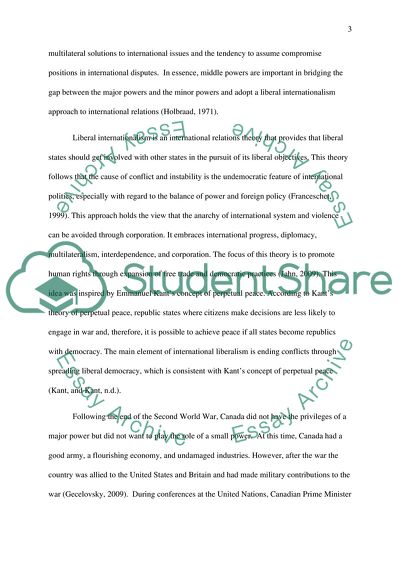Cite this document
(Canada as a Liberal Middle Power in International Relations Literature review, n.d.)
Canada as a Liberal Middle Power in International Relations Literature review. Retrieved from https://studentshare.org/history/1880003-international-relations-canada-as-a-liberal-middle-power-in-international-relations-under-stephen-harper
Canada as a Liberal Middle Power in International Relations Literature review. Retrieved from https://studentshare.org/history/1880003-international-relations-canada-as-a-liberal-middle-power-in-international-relations-under-stephen-harper
(Canada As a Liberal Middle Power in International Relations Literature Review)
Canada As a Liberal Middle Power in International Relations Literature Review. https://studentshare.org/history/1880003-international-relations-canada-as-a-liberal-middle-power-in-international-relations-under-stephen-harper.
Canada As a Liberal Middle Power in International Relations Literature Review. https://studentshare.org/history/1880003-international-relations-canada-as-a-liberal-middle-power-in-international-relations-under-stephen-harper.
“Canada As a Liberal Middle Power in International Relations Literature Review”, n.d. https://studentshare.org/history/1880003-international-relations-canada-as-a-liberal-middle-power-in-international-relations-under-stephen-harper.


